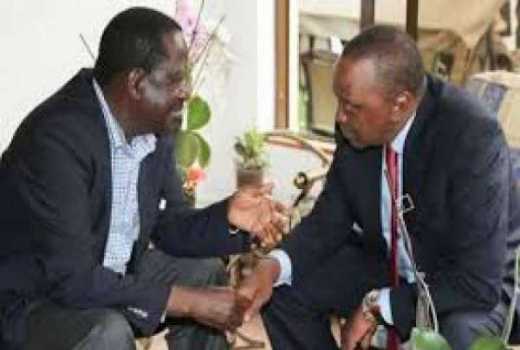
We live in interesting times. Two short months ago, no one would have imagined that Kenya’s politics would exhibit its current character. The bromance between President Uhuru Kenyatta and Raila Odinga has shocked both friend and foe.
Raila, recently anathema in my native county, was cheered when he appeared with the President at Matiba’s send-off service. So much else has changed courtesy of the handshake. The People’s Assemblies are no more. Kisumu vendors can sell Safaricom credit and Brookside milk. Only the NRM general seems conveniently forgotten.